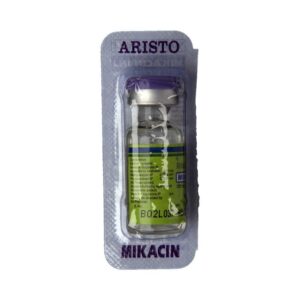AMIKACIN
AMIKACIN: AMIKACIN is an antibiotic used to treat severe bacterial infections. It belongs to the class of medications called aminoglycosides. It is primarily used when other antibiotics fail to control the infection or when the infection is caused by bacteria resistant to other antibiotics.
The mechanism of action of AMIKACIN involves inhibiting bacteria from synthesizing proteins that are essential for their growth and survival. It achieves this by binding to the bacterial ribosomes, which are responsible for protein synthesis, thereby preventing the bacteria from producing vital proteins. This action leads to the death or inhibition of the bacteria.
The dose of AMIKACIN varies depending on the severity of the infection, weight of the patient, and kidney function. It is usually administered intravenously or intramuscularly. The drug is typically given once or twice a day, but the exact dosage should be determined by a healthcare professional.
Like all medications, AMIKACIN can cause certain side effects. The most common side effects include:
1. Nephrotoxicity (toxicity to the kidneys) – monitoring of kidney function is essential during treatment.
2. Ototoxicity (damage to the inner ear) – which may lead to hearing loss or balance problems.
3. Neurotoxicity (toxicity to the nervous system) – characterized by muscle weakness, numbness, or tingling.
4. Allergic reactions – including rash, itching, and swelling.
It is important to note that the prevalence and severity of side effects can vary from person to person. The benefits of AMIKACIN in treating severe bacterial infections generally outweigh the potential risks, but close monitoring is crucial to detect and manage any adverse effects.


